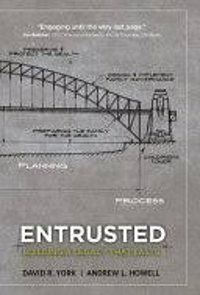How Much Is Enough For Your Children
Nearly every will I review looks like this: Your total net worth, divided by the number of children you have.
This may not lead to challenges if your estate is only worth $1M and you have three or four children. If your children are in a healthy situation, they will receive enough to do some positive things but not enough to cause serious damage. However, if you are leaving millions to each child, the risk of your inheritance becoming a curse rather than the intended blessing rises dramatically.
We all want to leave some level of financial blessing for our children. As we leave increasing amounts to our children, there is an increase in the blessing. However, there becomes a tipping point where the dollar value is such that it now becomes a curse rather than a blessing. The difficult part is to determine where the tipping point is. It is not difficult to appreciate this reality. We can all think of families where children were left an amount beyond the tipping point, and it led to their demise. Unfortunately, when it comes to our own family, I think too often we feel it won’t happen to our kids. We believe they are different. However, history proves that unless we do something different and are proactive in our estate planning, our children will be no different.
There becomes a tipping point where the dollar value is such that it now becomes a curse rather than a blessing.
David York in his exceptional book ‘Entrusted’ outlines the typical path our heirs will travel as they advance along the wealth continuum of their inheritance: or argument’s sake, assume that a given young-adult heir will most effectively and wisely use funds left to her. Access to ever increasing amounts of funds often follows a path that looks something like this:
- Funds are first used to assist with education
- Next, funds are used to fully fund education, including advanced levels of education
- Funds are typically next used to assist with the purchasing of a house
- Funds may then be used to pay off a house or acquire a second residence
- Entrepreneurial heirs may use funds to start a business
- Eventually funds can be used to provide income for living expenses and general wants
- Finally, there are sufficient funds so that there is no need to work or produce income
As you move along the financial continuum of what the beneficiary receives, you move from assisting in the launch of the beneficiary that can do anything to making it more likely she will fail to launch because she can choose to simply do nothing. The transfer of wealth goes from being a benefit to the point where it could actually detract from your family’s principles and values.” *

To avoid exceeding the tipping point, we recommend parents identify the objectives they wish to achieve with the inheritance. Typically, these objectives are found in some of the paths described above. After the objectives are identified, our team can quantify the funds necessary to achieve those objectives. This provides a dollar value that is required, and parents can recognize any inheritance beyond this will move their child further along the path from blessing to curse. This is an effective process whether your children are young and still at home, or if they are adults.
There are two other principles that are important when it comes to an inheritance. The first is to love our children equally but treat them uniquely. Parents typically want to treat their kids fairly and incorrectly assume that fair means equal. My contention is there is nothing so unfair as treating unique individuals equally. We are insulting them as individuals. We don’t give them each the same gift on their birthday because we recognize their individuality. I believe we should follow this practice when it comes to their inheritance. Each child has unique skills and abilities, unique financial situations, and different challenges. Are we being wise and caring parents if we give the same inheritance to three unique children? For example, let’s say one is a highly financially successful individual with little or no need for additional funds, the second is a capable individual who has chosen a vocation that provides limited income and a third child that has significant addiction challenges.
The principle we recommend is to love each child equally but to treat them uniquely. If you follow this process, it is important to discuss with your family the principles by which you have made your decision, so they will understand why you have made the choices you have. Parents may be reluctant to have this conversation, but it can be a very healthy one and help children that may be making poor choices to make positive changes. The end result might be all children receiving the same amount and that is fine. However, you want to follow this process so that you uniquely consider each child rather than defaulting to automatically treating them all the same.
The second principle is to do your giving while you are living so you know where it’s going. Given today’s longevity, inheritances that are given upon the parents passing may not be received until the heir is in their 60’s or 70’s, probably retired and often financially independent themselves. With a proper financial plan, it is easy for couples to understand their financial position and, when appropriate, to give an inheritance sooner than later. A partial inheritance given when heirs have larger mortgages, young children, post-secondary tuition to consider, etc. has a much greater impact in their lives then receiving it when there is limited or no need. Giving a partial inheritance early also allows parents to see how that money is used and make adjustments if needed in terms of future inheritances.
I think Warren Buffett provides a great summary on this topic when he said, “a very rich person should leave his kids enough to do anything but not enough to do nothing.”
*Entrusted Building A Legacy That Lasts, David York and Andrew Howell, YH Publishing, page 67


